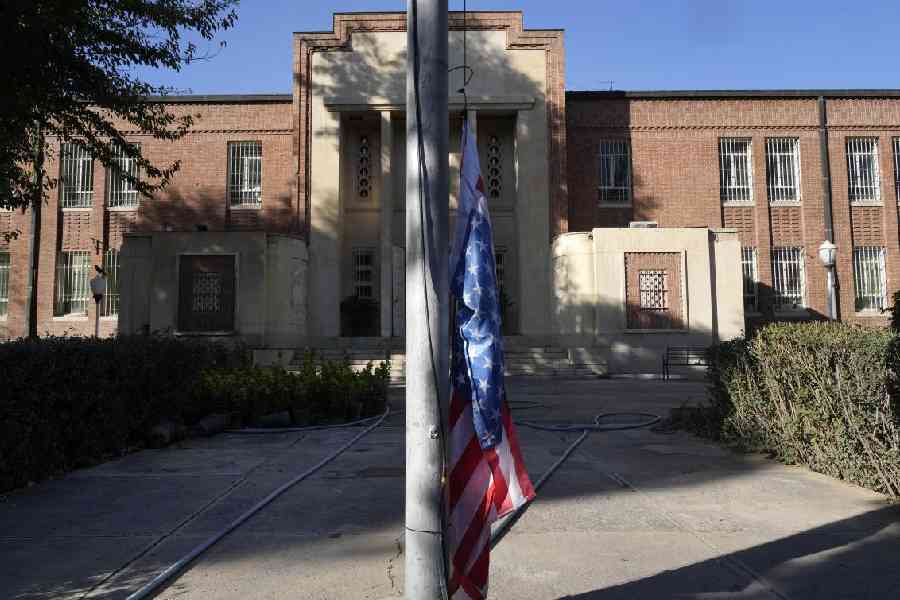America's presidential election next week comes just after Iran marks the 45th anniversary of the 1979 US embassy hostage crisis — and for many, tensions between Tehran and Washington feel just as high as they did then.
Iran remains locked in West Asian wars roiling the region, with its allies — militant groups and fighters of its self-described “Axis of Resistance” — battered as Israel presses its war in the Gaza Strip targeting Hamas and its invasion of Lebanon amid devastating attacks against Hezbollah. At the same time, Iran still appears to be assessing damage from Israel's strikes on the Islamic Republic last Saturday in response to two Iranian ballistic missile attacks.
Iran's currency, the rial, hovers near record lows against the dollar, battered by international sanctions over Tehran's nuclear programme of enriching uranium closer than ever to weapons-grade levels. In public spaces, women still openly defy Iran's mandatory law on the headscarf, or hijab, a result of the mass demonstrations over the 2022 death of Mahsa Amini that still haunts the country.
That has left a feel of fatalism among some on the streets of Tehran as Americans cast ballots for either Vice-President Kamala Harris or former President Donald Trump. Many are split on which candidate would be better for their country — if at all.
“All US Presidents elected after the (1979) revolution had the same views about Iran and I think that’s unlikely to change," said Sadegh Rabbani, 65.
Harris and Trump have offered hardline views on Iran, making Iranians wary. Both candidates have either undertaken or expressed tough stances on Iran.
In an outdoor coffeeshop in downtown Tehran, popular among the youth, 22-year-old Zahra Rezaei said she preferred a Harris win.
“We saw Trump in the past and he just ran an anti-Iran policy,” Rezaei told The Associated Press. "It is time for a woman ... I think she (Harris) will better since she is not after war.”
A woman who only gave her name as Mahnaz, fearing repercussions for speaking openly, suggested that Harris, as a woman, couldn’t reach any deals with Iran because “men can talk to men.”
“I think if Trump is elected, it will be much harder for our kids. Of course it doesn’t matter which one is elected, it’s already tough for us,” said Fariba Oodi. “We the Iranian people are trapped in some political game. And our kids are paying a price for that," she added. "But I still think if it’s Trump, it will be more difficult, especially for my son who is a student and plans to apply” to study in America.
AP










